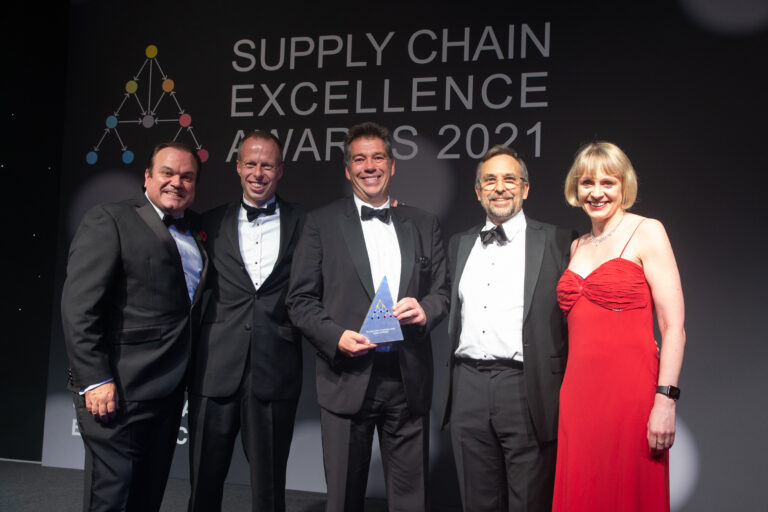The timing of COP26 over the past few weeks has been perfect for Menzies Distribution, which claimed the ‘Unipart Logistics Award for Sustainability’ at the Supply Chain Awards on Monday 8th November.
Sustainability wasn’t a recognised imperative when the company started out in 1833, but it revealed to judges that it has been “designing sustainable routes to market since the outset”, which was an impressive factor for the panel.
“This ‘project’ has been years in the making – this is a mature sustainability agenda with focus within the company and instead of being a one-off initiative is an ongoing strategy at the core of the business,” assessed the 33-strong team of experts.
Sustainability is a core pillar of Menzies’ business because it believes “circular processes are the only ones that will stand the test of time”. With a totally holistic outlook, it focuses on three key areas especially to make its business more sustainable and its network and transport cleaner: fleet; energy consumption; and recycling and reuse.
Simply running an electric fleet is no longer impressive enough to win a Supply Chain Excellence Award, although the judges did note Menzies started introducing its dedicated electric fleet across its operations way ahead of regulatory deadlines (it aims to continue doing so at pace). What stood out, though, is that to enable its fleet to make as many carbon-neutral deliveries as possible, it established the largest commercial charging infrastructure in the UK and it is busy working to broaden the wider charging ecosystem. Through extensive trials, the company developed an energy-efficient vehicle-to-grid (V2G) charging process – meaning it charges at off-peak times and returns spare charge to the grid at peak times when demand for energy is high.
Around 260,000 emission-free miles are now driven every year, according to Menzies, delivering more than 10 million items – even rural areas such as the Scottish Highlands and Islands are receiving emission-free deliveries. That equates to something in the region of 2,500,000kg of CO2 being saved.
As for the rest of its fleet, improvements in vehicle design have made bodywork more aerodynamic – the introduction of air deflectors has reduced vehicle drag by 30% and increased fuel efficiency by 10-15%. Even the livery on its vehicles is PVC-free (biodegradable and free from toxic chemicals). Dual-fuel LNG and CNG vehicles are also at large within its fleet. Overall, across all of its operation, Menzies actively measures total CO2 per kilometre and that has recorded a 5.8% reduction over the past 12 months.
Aside from the vehicles, the company optimises routes to minimise miles driven and has a robust driver monitoring and training programme to not only reduce emissions and increase efficiency, but also improve safety.
Continued investment and energy-efficiency measures at its depots (such as renewable power) have reduced CO2 per square foot of warehouse space by 61% over the past four years alone. Consumption will be further reduced through the implementation of technologies such as automatic temperature control, automatic power-down on all electrical items, efficient lighting, energy-efficient boilers, and roof-top solar panels – all of which will reduce consumption by a further 20%.
In a sector with much recyclable material, Menzies has also implemented a waste management strategy that allows it to recover, bale and recycle 26,331 tonnes of material each year, while its dedicated returns sortation centre has recently passed the 14 million item mark.
“Investment in infrastructure, electric fleet, smart lighting, and solar power reflect that not only is it investing in the environment currently, but that this investment will continue well into the future,” the panel noted. “Menzies is setting the sustainability benchmark for the rest of the industry to follow.”
What they said… Long-term thinking is essential when building a business that’s ready for the future. A lot has changed since we started, not least our commitment to doing the right thing and hard-wiring sustainable practices into every aspect of our business. But there’s always more that can be done.
What we said… If we consider the ‘client’ to be the world at large, then there are clear benefits to both the population and local employees. The business benefits are felt throughout every arm of the operation, from infrastructure, to transport and warehousing. Sustainability is clearly at the very top of the agenda.
For sponsorship opportunities for the 2022 Supply Chain Excellence Awards, please click here







